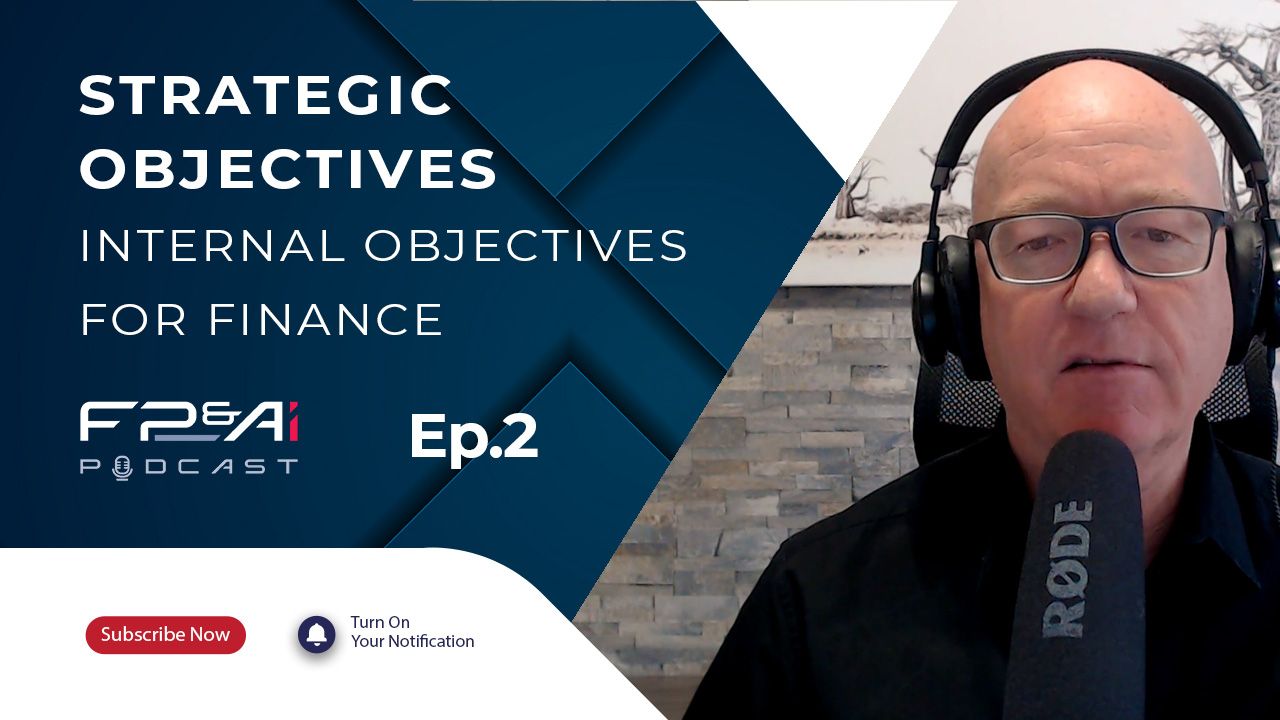FP&Ai Podcast: Ep 2 : Strategic Objectives | Internal Objectives for Finance
Welcome to the FP&AI Podcast, where finance meets the future. In this episode, Roger is joined once again by Anthony and Donovan to dive into one of the most critical pillars of a successful finance function: planning.
Stay tuned for the next episode, where the discussion moves to collaboration and business partnering in finance.
Conversation Highlights:
[0:00] Roger welcomes listeners back and recaps the previous episode on setting 3–5 year strategic objectives. He now moves on to the internal perspective of the balanced scorecard, asking: Which processes must finance excel at to satisfy stakeholders?
[1:30] Roger notes that while Deloitte’s shareholder value framework lists hundreds of options, most internal objectives can be grouped into a few big themes: planning, quality, collaboration, speed, efficiency, innovation, and governance.
[3:00] Anthony emphasizes the importance of planning, analysis, and reporting in finance. He highlights accuracy, timeliness, cost-effectiveness, and well-defined processes across cycles such as month-end, year-end, and budgeting. Clear roles, timelines, and responsibilities are critical for smooth execution.
[6:00] They discuss practical planning rhythms. Processes should be reviewed at the start of cycles (e.g., January year-end planning), with regular team meetings—weekly or daily as needed—to monitor progress and address issues. Donovan adds that planning should start before year-end, often as early as mid-December.
[9:00] The conversation shifts to dependencies on other departments during cycles like budgeting. Since other teams may not prioritize finance timelines, communication and early engagement are vital. Finance should build these requirements into processes and send reminders to ensure collaboration.
[12:00] Roger stresses that budgeting must be framed as a business-wide responsibility, not just a finance deliverable. Departments should take ownership and accountability for their inputs, with finance facilitating and translating commitments into value.
[16:00] Examples from IT planning illustrate how continuous engagement with business units avoids last-minute pressure. Finance should adopt similar practices, using ongoing communication and relationship management to integrate planning into everyday operations.
[19:00] The concept of finance business partners is introduced. These roles embed in operations, bridging the gap between finance and other departments. They improve collaboration, ensure timely information flow, and enhance the quality of reporting—though organizations often fail to measure the ROI of these roles.
[23:00] Roger returns to the importance of early communication and budget guidelines, which help divisions prepare and align. Effective planning should include communication checkpoints and reminders across cycles.
[26:00] He adds that planning applies beyond finance—HR, IT, marketing, and all business processes should start with planning. Poor follow-through on insights can leave “money on the table,” highlighting the value of business partners in ensuring opportunities are realized.
[28:00] As the podcast wraps up, Donovan stresses the quality and speed of planning, not just the act itself. Standardization and automation can improve efficiency. Anthony adds that planning must be continuous and iterative—even a bad plan provides useful feedback for replanning.
[31:00] Roger closes by emphasizing that planning is central to finance and business success. Whether strategic or operational, good planning creates clarity, drives collaboration, and enables long-term value creation.




